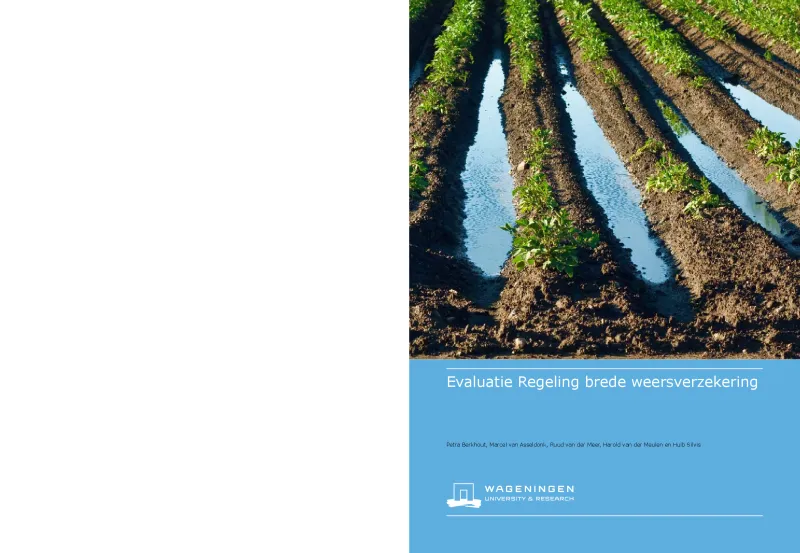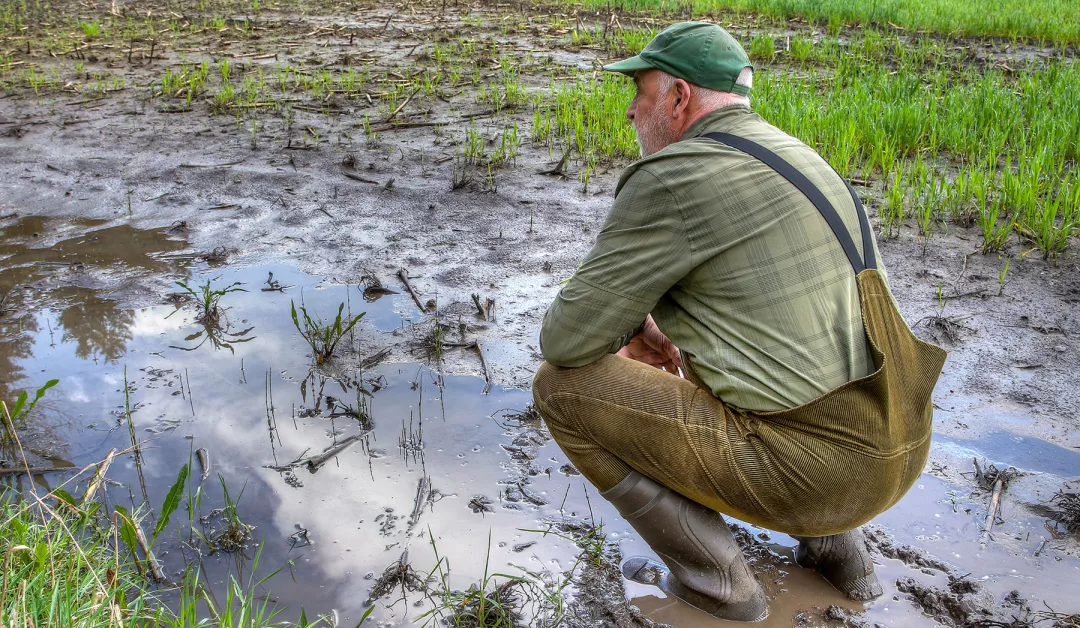Evaluation of a weather insurance scheme
This report evaluates a subsidy provided by the Dutch government that encouraged farmers to participate in a weather insurance scheme.
- Netherlands
- 2014-2022
- Sectorial impacts


The agricultural sector has limited opportunities to avoid risks of weather events for open field crops. However, damage caused by extreme weather conditions (e.g. heavy rain or hail) can have a major impact on the financial performance of farms and the agricultural sector. Before 2002, the Dutch government regularly compensated for damage caused by extreme weather events. Nowadays, the government encourages farmers to participate in a weather insurance scheme by granting a premium subsidy, thus trying to create a market for weather insurance. This report evaluates the premium subsidy over the period of 2010-2014.
The evaluation of the ‘Scheme for broad insurance for bad weather’ revolves around two key questions, namely: 1) At the end of the scheme for broad insurance for bad weather from 2010 to 2014, is there a commercially attractive insurance policy for the insurer and insured parties that does not involve government funding?; and 2) To what extent has the scheme resulted in a decrease in the number and narrowing of the scope of claims for damages submitted to the Dutch Ministry of Economic Affairs?
The evaluation was conducted based on data gathered via a survey among arable farmers, fruit growers, and livestock holders who grow green maize, data from interviews with interested parties on the supply and demand side, and data from a scenario analysis. The combined results of these partial activities provide information on the scheme's scope, efficacy and efficiency.
As the insurance covers extreme weather, an uncommon phenomenon, it is difficult to objectively establish that the scheme resulted in fewer claims. However, there have been a number of extreme weather situations in the short period since the scheme was made available. Still, none of the sector representatives have submitted a claim for ad-hoc public compensation. The Dutch Ministry of Economic Affairs had a clear message that agricultural organisations need to highlight the availability of the scheme.
The evaluation finds that assumptions made by the government when designing the scheme have not materialised. These assumptions were that all outdoor farms would have taken out broad insurance for bad weather in four years and that every participant would have insured all crops across their area.
The goal of creating commercially attractive insurance policies for insurers and agricultural entrepreneurs has not been achieved. In addition, apart from the crop damage in June 2016, the goal of decreasing the number of claims for damages to the Dutch Ministry of Economic Affairs has been met.
The Netherlands Enterprise Agency (RVO) appears to be implementing the scheme efficiently. This is predominantly thanks to the effective collaboration between RVO and the parties offering a broad insurance policy for bad weather, coupled with the fact that the scheme can be administered with the 'Combined Assignment', another scheme in which agricultural entrepreneurs submit data to the RVO yearly.
Based on frost damage to fruit crops in 2012, the costs to the government if there had been no scheme from 2010 to 2014 are estimated at EUR 46 million. In the past, relief was provided in incidents of a similar nature. In 2012, the annual premium funding amounted to EUR 4.8 million. The estimated ad hoc damages compensation due is also considerably higher – around twice the amount – than the premium funding paid out from 2010 to 2014, amounting to EUR 23 million.
Author(s)
Petra Berkhout, Marcel van Asseldonk, Ruud van der Meer, Harold van der Meulen en Huib Silvis
Resources
Documents
Evaluation of a weather insurance scheme
(PDF – 1.81 MB – 64 pages)